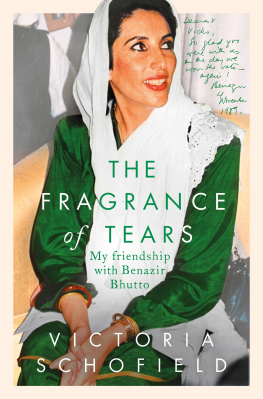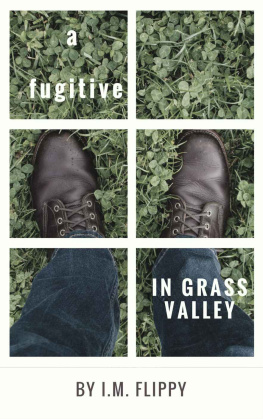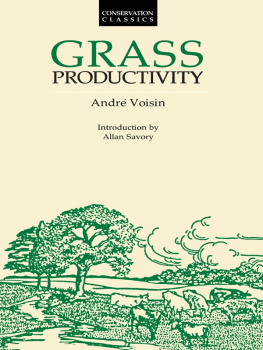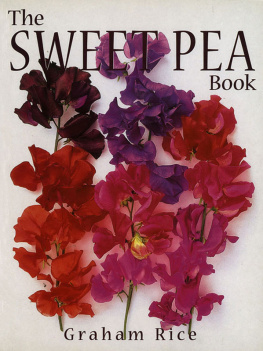Epperly - The Fragrance of Sweet-Grass
Here you can read online Epperly - The Fragrance of Sweet-Grass full text of the book (entire story) in english for free. Download pdf and epub, get meaning, cover and reviews about this ebook. year: 2014, publisher: University of Toronto Press, genre: Art. Description of the work, (preface) as well as reviews are available. Best literature library LitArk.com created for fans of good reading and offers a wide selection of genres:
Romance novel
Science fiction
Adventure
Detective
Science
History
Home and family
Prose
Art
Politics
Computer
Non-fiction
Religion
Business
Children
Humor
Choose a favorite category and find really read worthwhile books. Enjoy immersion in the world of imagination, feel the emotions of the characters or learn something new for yourself, make an fascinating discovery.

- Book:The Fragrance of Sweet-Grass
- Author:
- Publisher:University of Toronto Press
- Genre:
- Year:2014
- Rating:4 / 5
- Favourites:Add to favourites
- Your mark:
- 80
- 1
- 2
- 3
- 4
- 5
The Fragrance of Sweet-Grass: summary, description and annotation
We offer to read an annotation, description, summary or preface (depends on what the author of the book "The Fragrance of Sweet-Grass" wrote himself). If you haven't found the necessary information about the book — write in the comments, we will try to find it.
The Fragrance of Sweet-Grass — read online for free the complete book (whole text) full work
Below is the text of the book, divided by pages. System saving the place of the last page read, allows you to conveniently read the book "The Fragrance of Sweet-Grass" online for free, without having to search again every time where you left off. Put a bookmark, and you can go to the page where you finished reading at any time.
Font size:
Interval:
Bookmark:
THE FRAGRANCE OF SWEET-GRASS
(WITH A NEW PREFACE)
When it originally appeared, Elizabeth Rollins Epperlys The Fragrance of Sweet-Grass was one of the first challenges to the idea that L.M. Montgomerys books were unworthy of serious study. Examining all of the authors novels, Epperly argued that Montgomery was much more than a master of the romance genre and that, through her use of literary allusions, repetitions, irony, and comic inversions, she deftly manipulated the normal conventions of romance novels. Focusing on Montgomerys memorable heroines, from Anne Shirley to Emily Byrd Starr, Valancy Stirling, and Pat Gardiner, Epperly demonstrated that Montgomery deserves a place in the literary canon not just as the creator of Anne of Green Gables but as an artist in her chosen profession.
Since its publication more than twenty years ago, The Fragrance of Sweet-Grass has become a favourite of scholars, writers, and Montgomery fans. This new edition adds a preface in which Epperly discusses the books contribution to the ongoing research on the life and writing of L.M. Montgomery, reflects on how Montgomery studies have flourished over the past two decades, and suggests new ways to approach and explore the Canadian writers work.
ELIZABETH ROLLINS EPPERLY is Professor Emerita of English at the University of Prince Edward Island. She is a past president of UPEI and the founder of its L.M. Montgomery Institute.
L.M. Montgomerys Heroines and the Pursuit of Romance
(WITH A NEW PREFACE)
ELIZABETH ROLLINS EPPERLY

First edition: University of Toronto Press 1992
First paperback edition: University of Toronto Press 1993
Edition with new preface by the author: University of Toronto Press 2014
Toronto Buffalo London
www.utppublishing.com
Printed in the U.S.A.
ISBN 978-1-4426-2653-9

Printed on acid-free paper.
Library and Archives Canada Cataloguing in Publication
Epperly, Elizabeth R., author
The fragrance of sweet-grass : L.M. Montgomerys heroines
and the pursuit of romance : with a new preface / Elizabeth Rollins Epperly.
Includes bibliographical references and index.
ISBN 978-1-4426-2653-9 (pbk.)
I. Montgomery, L.M. (Lucy Maud), 18741942 Criticism and
interpretation. I. Title.
PS8526.O55Z638 2014 C813.52 C2014-900130-4
University of Toronto Press acknowledges the financial assistance to its publishing program of the Canada Council for the Arts and the Ontario Arts Council.

University of Toronto Press acknowledges the financial support of the Government of Canada through the Canada Book Fund for its publishing activities.
To the memory of my father,
John David Epperly,
who loved Montgomerys books and introduced me to them.
and to the memory of my cousin
Nancy Weddle Goodman,
a rare and beautiful spirit
If wide Internet searching had been available in 1992, when The Fragrance of Sweet-Grass was first published, I would only have had to scroll through a couple of dozen entries to explore the critical field concerning Lucy Maud Montgomery (18741942), respectfully but concisely catalogued as a late nineteenth- and early twentieth-century Canadian author. Today, when I enter L.M. Montgomery into the University of Prince Edward Island Robertson Library search engine, I find more than twenty-five thousand items. What has happened to the study of L.M. Montgomery? Why do her works seem to matter still? And, more pointedly, why make freshly available to new and seasoned scholars my critical study of Montgomerys novels, now more than twenty years old?
I can sum up my answer to these questions with four concepts: context, confluence, community, and creativity which may in time prove to be the ones we use to assess what creates a fifth c, classic. I undertook the writing of Sweet-Grass at a very special time in my own life and academic career and was able to do so because of certain cultural forces and opportunities converging at precisely that moment; through that writing, I engage with a growing number of Montgomery readers, fans, and scholars determined to inquire meaningfully, through multiple disciplines and perhaps a place to begin a critical engagement with Montgomerys novels, even yet.
Before I begin to break down my answer into some of its component parts, I want to identify something that motivated me to write this book initially and that continues to inspire me about Montgomerys writing: concepts and creative tensions. Montgomery continues to hold my attention because she exploits tensions so well: between realism and romance, sentiment and sentimentality, humour and gravity, exuberance and tranquility, interior and exterior. The telling of Annes story, or for that matter, the telling of Emilys or Valancys or Pats or Janes, is rendered through tensions and release of tensions I still find poignant and potent. In addition, I now see my writing about Montgomery and, in the larger picture, even Montgomerys evolving reputation as a writer for different audiences, as manifestations of culturally constructed creative tensions.
The writing of Sweet-Grass as an academic book also intended for a popular audience was a declaration of tensions: to defy and at the same time to celebrate. I had earned tenure and promotion along more conventional lines before I dared to take a years leave without pay to write a book from the core of my heart. I would never have used the expression core of my heart then; it would have embarrassed me and fellow scholars who were trying to establish Montgomery as a serious subject for study. With a perspective shaped largely by feminist literary criticism, I was writing for an academic audience I hoped very much would include Montgomery readers and fans curious about their beloved author. I thought the non-academic readers would not be conversant with academic shorthand, which would have made my study sound more acceptably rigorous and detached. I wanted the title to declare my intention to include non-academic readers and fans; we compromised with a title and subtitle. The light, sentimental sounding metaphor from Montgomerys fiction, the fragrance of sweet-grass, introduces the heavier freight of the subtitle (L.M. Montgomerys Heroines and the Pursuit of Romance): the sporadically overpowering and persistently motivating influence of a complexly constructed romance in the lives of women, both as readers and as people operating within particular cultural expectations.
So, the writing of what was arguably the first full-length, single-authored work of literary criticism dealing with all of Montgomerys novels relied on sustaining a tension between (at least) two supposedly different ways of seeing and talking.
One of the most inspiring tensions I experience with Montgomerys writing is this simultaneous reading as both life-time fan and literary critic. Pleasure keeps me reading as a fan; curiosity compels me to question and to explore the patterns I perceive within the texts and in my engagement. More than this, I want to know why Montgomery is read by so many different kinds of people in so many different countries. What is there about her creativity that crosses supposed boundaries of culture, gender, and time? What can I learn, and invite others to see with me, about the human brain and mind (and perhaps about the conventionally perceived mind and body split) from assessing her creative works and processes? Because of the volume of her output of fiction and self-revealing non-fiction, and the degree and history of her popularity, Montgomerys writing is, I think, an ideal place for science and the arts together more fruitful tensions! to explore creativity itself.
Next pageFont size:
Interval:
Bookmark:
Similar books «The Fragrance of Sweet-Grass»
Look at similar books to The Fragrance of Sweet-Grass. We have selected literature similar in name and meaning in the hope of providing readers with more options to find new, interesting, not yet read works.
Discussion, reviews of the book The Fragrance of Sweet-Grass and just readers' own opinions. Leave your comments, write what you think about the work, its meaning or the main characters. Specify what exactly you liked and what you didn't like, and why you think so.








